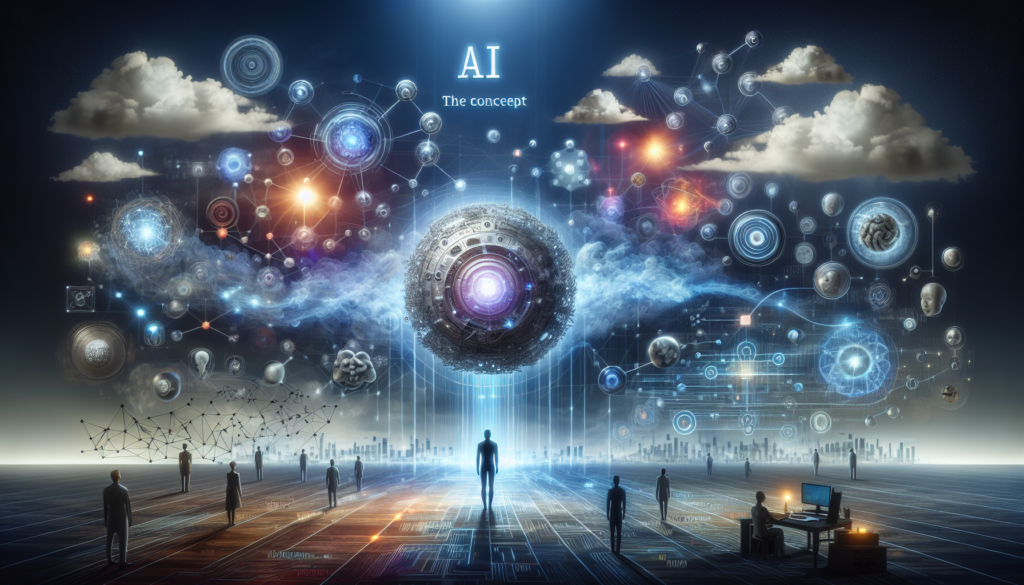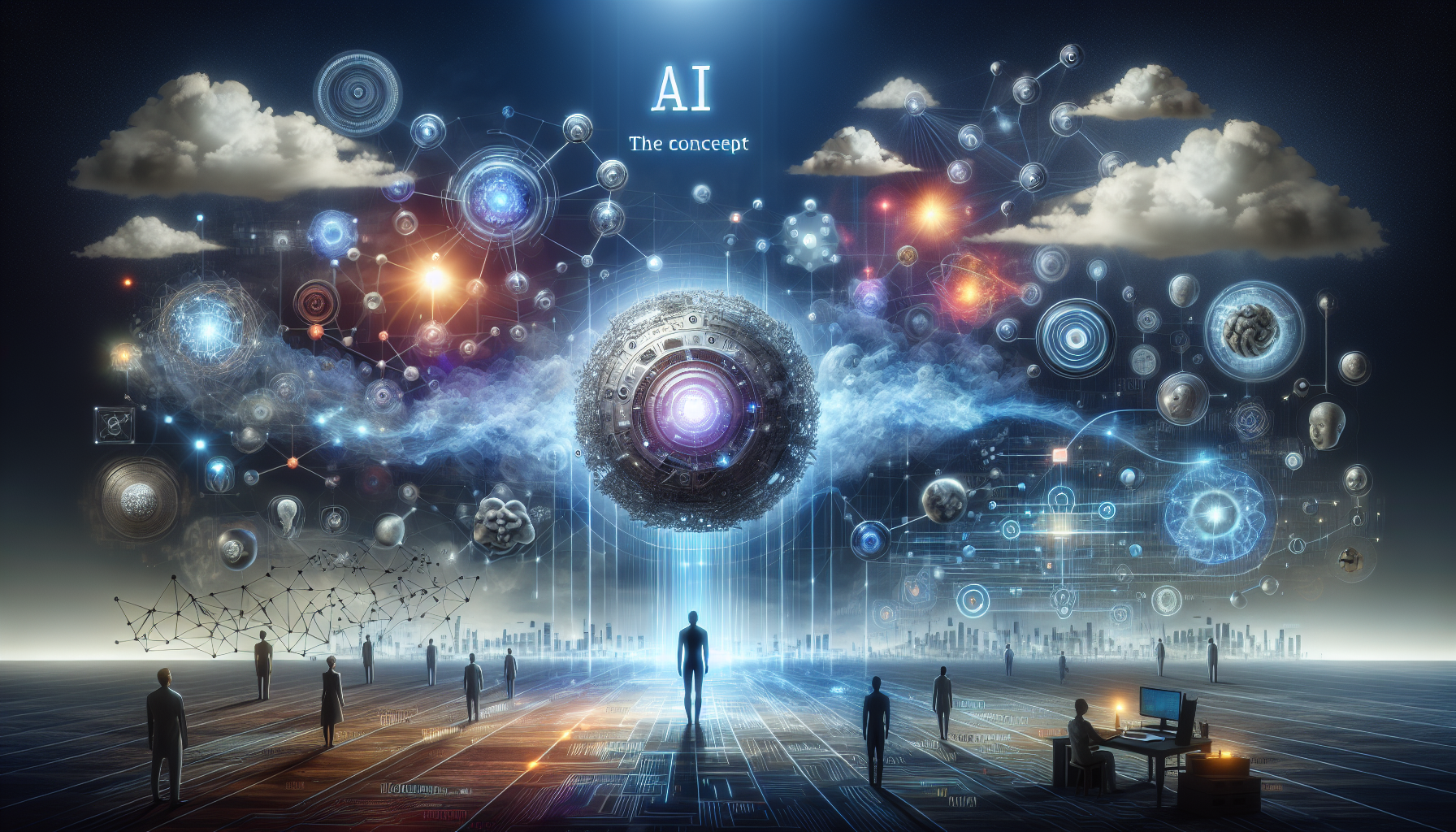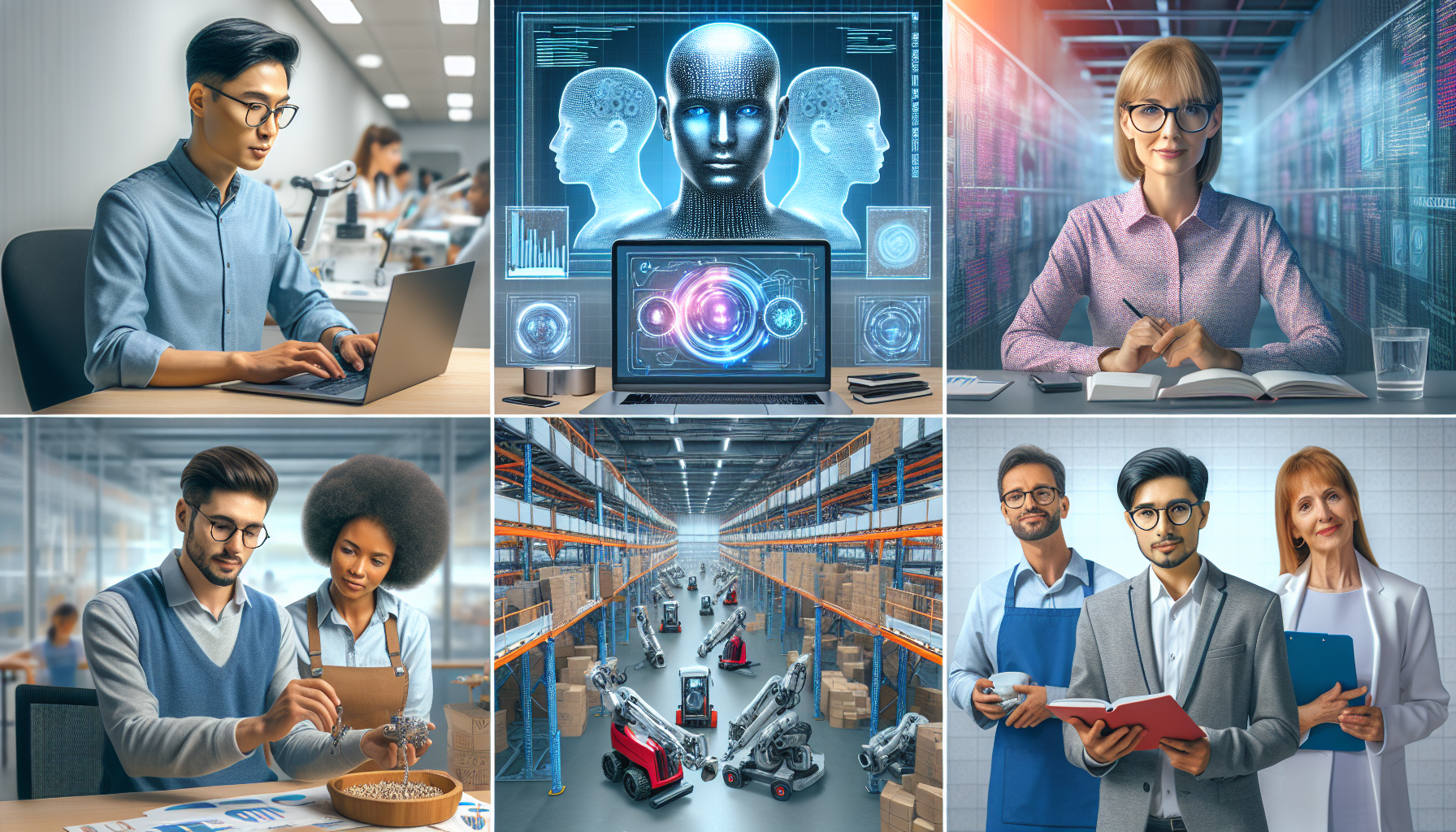Introduction
Artificial Intelligence (AI) is transforming the world at an unprecedented pace. Whether you’re a tech enthusiast or someone curious about the digital future, understanding the basics of AI is crucial. In this blog post, we’ll delve into the top 10 Artificial Intelligence concepts that every beginner should know. Let’s embark on this exciting journey! 🚀
Table of Contents
1. Introduction to Artificial Intelligence
2. Machine Learning: The Heart of AI
3. Deep Learning: Diving Deeper
4. Neural Networks: The Brain of AI
5. Natural Language Processing: Communicating with Machines
6. Computer Vision: The Eyes of AI
7. Robotics: Bringing AI to Life
8. AI Ethics: Navigating Moral Landscapes
9. Data Science: The Fuel for AI
10. Reinforcement Learning: Learning Through Interaction
11. Conclusion
12. FAQ Section

1. Introduction to Artificial Intelligence 🤖
Artificial Intelligence refers to the simulation of human cognitive processes through machines, particularly computer systems. This innovative field encompasses a range of capabilities, such as learning from data, reasoning through complex scenarios, solving intricate problems, perceiving environmental stimuli, and understanding human language patterns. For those new to AI, it is essential to delve into the fundamental principles and core concepts that drive the technology forward, as these foundational elements are key to building a solid understanding of its mechanisms and potential applications.
2. Machine Learning: The Heart of AI 💡
Machine Learning (ML) is a fascinating subset of Artificial Intelligence (AI) that revolves around the concept of enabling systems to learn and improve from data autonomously. It emphasizes the ability of machines to identify patterns, analyze vast amounts of information, and make informed decisions without the need for constant human oversight or manual programming. Essentially, it’s like teaching a computer how to fish, empowering it to continuously feed itself with valuable, data-driven insights and uncover deeper trends! 🐟
3. Deep Learning: Diving Deeper 🌊
Deep Learning represents a highly advanced and specialized branch of Machine Learning, designed to emulate the complex processes of the human brain. It excels at analyzing vast amounts of data, identifying intricate patterns, and making intelligent decisions based on these insights. This cutting-edge technology is integral to a wide range of applications, including voice recognition systems, image processing, autonomous vehicles, and numerous other innovative solutions that are transforming industries.
4. Neural Networks: The Brain of AI 🧠
Neural Networks consist of a sophisticated series of algorithms designed to replicate the intricate operations of the human brain, allowing machines to identify and interpret relationships within extensive sets of data. These networks serve as the foundation of Deep Learning, empowering computers to discern patterns, make predictions, and address highly complex problems with remarkable efficiency.
5. Natural Language Processing: Communicating with Machines 🗣️
Natural Language Processing (NLP) is a powerful field of artificial intelligence that enables machines to comprehend, analyze, interpret, and respond to human language in a meaningful way. This groundbreaking technology is what powers voice assistants such as Siri and Alexa, facilitating smooth and intuitive interactions between humans and machines. By bridging the gap between human communication and machine understanding, NLP plays a crucial role in enhancing user experiences across various applications.
6. Computer Vision: The Eyes of AI 👀
Computer Vision empowers machines to analyze, interpret, and make informed decisions based on visual data collected from the surrounding environment. This groundbreaking technology plays a pivotal role in various domains, including healthcare, where it is utilized for advanced medical imaging analysis to aid in accurate diagnoses. Similarly, it serves as a cornerstone in the development of autonomous vehicles, providing critical capabilities for safe and efficient navigation in complex environments.
7. Robotics: Bringing AI to Life 🤖
Robotics seamlessly integrates artificial intelligence with physical machines, enabling them to carry out tasks that would traditionally depend on human intelligence and decision-making. Spanning industries from advanced manufacturing to the vast frontiers of space exploration, AI-powered robots are stepping into roles that are either too hazardous, repetitive, or time-consuming for humans to handle effectively. These innovative technologies are revolutionizing how complex challenges are approached and solved across various fields.
8. AI Ethics: Navigating Moral Landscapes ⚖️
As artificial intelligence continues to advance at an unprecedented pace, the importance of ethical considerations grows significantly. AI ethics encompasses the principles and frameworks necessary to ensure that AI technologies are designed, implemented, and utilized in a manner that prioritizes responsibility and fairness. This involves addressing critical concerns such as safeguarding privacy, mitigating algorithmic bias, ensuring transparency, and establishing clear accountability for decisions made by AI systems. It is crucial to create guidelines that align technological progress with societal values, fostering trust and promoting equitable outcomes.
9. Data Science: The Fuel for AI ⛽
Data Science is an expansive field focused on the processes of collecting, analyzing, and interpreting large volumes of data to uncover valuable insights. It serves as the driving force behind AI systems, providing the essential information required for these systems to learn, adapt, and improve over time. The effectiveness of AI is inherently tied to the quality and quantity of data it processes, as data acts as the fundamental resource that fuels its capabilities and growth. Without sufficient data, AI systems would struggle to function optimally or achieve meaningful outcomes.
10. Reinforcement Learning: Learning Through Interaction 🎮
Reinforcement Learning is a branch of Machine Learning in which an agent learns to make optimal decisions by interacting with its environment and taking actions that maximize its cumulative reward over time. It can be compared to training a dog to perform new tricks by using a system of rewards and feedback, where the dog gradually learns the best behaviors to earn treats or praise!
Conclusion
Understanding these foundational AI concepts is like holding the key to a treasure chest of technological wonders. As you delve deeper into AI, these concepts will serve as your guide, helping you navigate the ever-evolving landscape of artificial intelligence.
FAQ Section
1. What is the difference between AI and Machine Learning?
AI is the broader concept of machines being able to carry out tasks in a way that we would consider “smart”. Machine Learning, on the other hand, is a current application of AI based on the idea that we should just be able to give machines access to data and let them learn for themselves.
2. Can you give an example of Deep Learning in action?
Sure! A prime example of Deep Learning is image recognition. For instance, Facebook’s automatic tagging of friends in photos is powered by Deep Learning algorithms that recognize faces.
3. How does Natural Language Processing benefit businesses?
NLP can enhance customer service through chatbots, perform sentiment analysis on social media, and improve the search functionality on websites, making interactions more efficient and user-friendly.
4. What role does Data Science play in AI?
Data Science provides the necessary data and insights for AI models to learn and improve. It involves data collection, cleaning, analysis, and interpretation, which are critical for training effective AI systems.
5. Why is AI Ethics important?
AI Ethics is important to ensure that AI technologies respect privacy, avoid bias, and are used responsibly. It helps in building trust and ensuring that AI developments are aligned with societal values.
Embark on your AI journey with these insights, and who knows? You might just be the next pioneer in this groundbreaking field! 🌟



